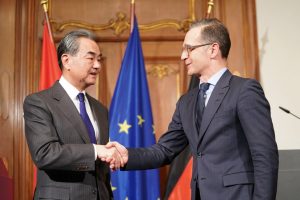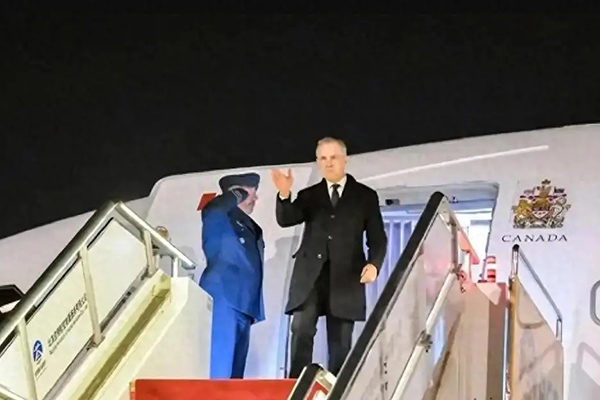As the West wanes, China and Europe can build a more inclusive world order together
SCMP | February 26 , 2020
The West is going through a period of self-reflection and reconsidering what it stands for in the world. That was the most striking takeaway from the annual Munich Security Conference this month, a gathering known as a Davos for foreign-policy makers and diplomats.
Wolfgang Ischinger, chairman of the conference, kicked off the event by introducing the theme of “Westlessness” and observing how the West itself is becoming less Western, and the world as a whole is becoming less Western, too.
On one level, it is not hard to see what is fuelling this feeling of uncertainty, which has come to permeate the international community. Far-reaching power shifts have curtailed the West’s relative ability to impose its will on the world and shape global governance.
Divisions within the West itself are another cause of Westlessness. Differences, especially across the Atlantic, have become ever more apparent with the resurgence of nationalism and populism – and United States President Donald Trump’s “America first” policy.
So it was that, at the conference, US Secretary of State Mike Pompeo declared that “the West is winning” even as French President Emmanuel Macron noted the weakness of the West and argued that Europe should have its own foreign policies, distinct from the US.
Both these factors – the rise of the rest, and fractures in the transatlantic alliance – have fuelled the sense of Westlessness. But maybe a deeper cause is not the relative decline of the West, but that the very concept of the West itself is out of sync with the times we live in and needs to be updated into something more inclusive.
Although the meaning of “the West” has changed over time, it has always contrasted itself against something else. During the cold war, the West stood opposed to the Soviet-led Eastern Bloc.
Yet, since the end of the cold war, one by one, the political, economic and cultural rationales used to justify the binary of East and West have been undercut by globalisation, development and shifts in geopolitics.
It may be seductive to carve a complex world into two simple halves: “us” and “them”. But a concept of the West that excludes the rest of humanity is not only empirically dubious, it is also analytically dangerous.
Viewing an interconnected world through a simplistic binary lens could obscure the reality that the gravest threats are transnational and pay no heed to north, south, east or west.
Whether it is climate change, international terrorism or the threat of a global pandemic, events of the past few months have clearly shown that our most pressing challenges can only be addressed by working together, not dividing the world into different spheres.
In an increasingly multipolar world, leaders need to seek a more inclusive order. This means accepting the rise of countries with different development models, such as China, which accounts for nearly 30 per cent of global growth.
As the second-largest financial contributor to the United Nations and a signatory of the Paris climate accord, China is willing and able to play a key role in addressing global challenges.
This is where events like the Munich Security Conference, which decision-makers from major global players take part in, enter the picture. They can play an important role as a mediator or platform in the journey towards a new, more inclusive order and a new narrative to help us understand the world.
For example, one idea put forward at this year’s conference was the notion of a China-EU-US trilateral relationship, in which a more independent and active European Union would play a greater role in balancing the US and China and promoting global cooperation.
In this regard, amid rapid changes and challenges, 2020 also presents opportunities to craft a new global politics and build a working China-EU-US trilateral mechanism. Later this year, the first China-EU summit will take place in Leipzig, Germany.
This new format is expected to feature not only Chinese President Xi Jinping, but also leaders of all the 27 remaining EU member states; it could be an unprecedented chance to deepen dialogue and forge a consensus between the EU and China, and provide impetus for global cooperation.
The old Western-led international order has come under increasing strain, but leaders should not lose sleep over the world becoming more “Westless”. The West still has much to contribute. But, instead of trying to preserve yesterday’s world order, it is up to all of us to look ahead and craft a more inclusive world order for the future.
Recommended Articles
-

Wang Huiyao: Key lessons from China’s ascent over the past 25 years
-
Wang Huiyao: Key lessons from China’s ascent over the past 25 years
-
Wang Huiyao: China and Latin America: Partners in a shared new era
-
Wang Huiyao: Only a multipolar coalition can secure Ukraine peace
-
Wang Huiyao: How to Fix the Security Council